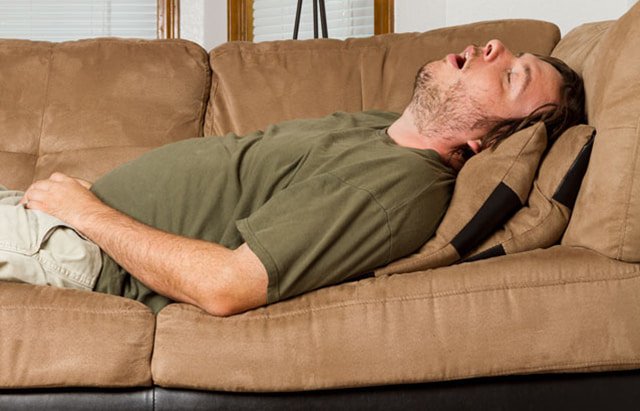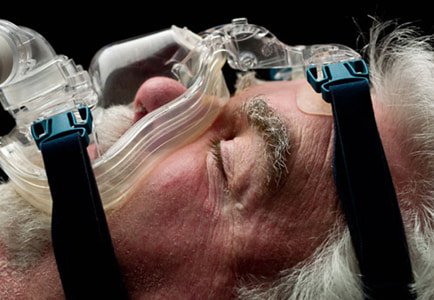Sleep apnoea and snoring
Snoring and sleep apnoea
Snoring occurs when air flow through the nose
and mouth is obstructed. This causes the airway
tissue to vibrate and make the snoring sound,
can be a sign of a more serious medical condition
called sleep apnea.
Sleep Apnea Symptoms
Symptoms include noise during sleep, excessive daytime sleepiness, difficulty concentrating, morning headaches, sore throat, restless sleep, very loud snoring and waking up choking or gasping.
Sleep apnea is pauses in breathing or shallow breathing while asleep. These pauses can last a few seconds to a few minutes. Generally, breathing begins again and is sometimes accompanied by snorting or choking.

Types of Sleep Apnea
obstructive sleep apnea,
central sleep apnea,
Sleep apnea may lead to serious complications such
as daytime fatigue, high blood pressure or heart
problems, type two diabetes, metabolic syndrome,
stroke or liver problems.
Sleep Apnea Treatment
Patient need thorough nose and throat [ airway ]
examination. it may be necessary to do a SLEEP
STUDY [ Polysomnography ] overnight in a lab or at
home with special equipment.
Treatments
losing weight, avoiding alcohol, staying hydrated and
changing the pillow or sleep position.
advanced treatments such as continuous positive
airway pressure (CPAP), expiratory positive airway
pressure (EPAP) or an oral appliance.
surgical therapies throat/airway surgery or an
implantable tongue-stimulation device, such as
Inspire.
COMPLICATIONS OF SLEEP APNOEA
Daytime drowsiness, Irritability, Confusion and Loss of memory, Risk of automobile accidents and can lead to serious medical complications including heart disease, stroke, diabetes and high blood pressure.

Sleep Treatment Tips
Change your sleep position.
Try sleeping on your side instead. Try elevating the head of the bed a few inches, or prop yourself up using pillows.
Lose weight.
Excess weight around the neck can narrow your airway Avoid alcohol before bedtime.
Quit smoking.
Maintain a regular sleep routine.
Keep your nasal passages open.
Stay hydrated.
Use a humidifier at night.
Frequently Asked Questions (FAQ’s)
What is sleep apnea and how does it relate to snoring?
Sleep apnea is a condition where your breathing repeatedly stops and starts during sleep due to airway obstruction or brain signaling issues. Snoring occurs when airflow through the mouth and nose is partially obstructed, causing vibrations in the throat. While snoring is common, it can be a sign of sleep apnea, especially if accompanied by choking or gasping during sleep.
What are the symptoms of sleep apnea?
Common symptoms include:
Loud and persistent snoring
Pauses in breathing during sleep
Gasping or choking during sleep
Excessive daytime sleepiness
Morning headaches
Difficulty concentrating
Irritability or mood swings
What are the types of sleep apnea?
There are two main types:
Obstructive Sleep Apnea (OSA): The most common form, occurring when throat muscles relax excessively during sleep, blocking the upper airway.
Central Sleep Apnea: Occurs when the brain fails to send proper signals to the muscles that control breathing.
What are the potential complications of untreated sleep apnea?
If left untreated, sleep apnea can lead to:
High blood pressure
Heart disease or stroke
Type 2 diabetes
Metabolic syndrome
Liver problems
Daytime fatigue and cognitive impairment
How is sleep apnea diagnosed?
Diagnosis typically involves:
Clinical Evaluation: Assessment of symptoms and medical history.
Polysomnography: An overnight sleep study conducted in a sleep center or at home to monitor sleep patterns and breathing.
Home Sleep Apnea Testing: In some cases, portable monitoring devices may be used to diagnose sleep apnea at home.
What treatment options are available for sleep apnea?
Treatment depends on the severity and type of sleep apnea:
Lifestyle Modifications: Weight loss, avoiding alcohol and sedatives, quitting smoking, and changing sleep positions.
Continuous Positive Airway Pressure (CPAP): A device that delivers a continuous stream of air to keep the airway open during sleep.
Positive Airway Pressure (PAP) Therapy: Includes devices like BiPAP or APAP for more complex cases.
Oral Appliances: Dental devices that reposition the lower jaw and tongue to keep the airway open.
Surgical Options: Procedures to remove or shrink tissue, reposition the jaw, or implant devices like Inspire for severe cases.
When should you consult a specialist for sleep apnea?
Consult a specialist if you experience:
Loud, chronic snoring
Observed episodes of stopped breathing during sleep
Excessive daytime sleepiness
Morning headaches or sore throat
Difficulty concentrating or memory problems
What lifestyle changes can help manage sleep apnea?
Implementing the following can improve symptoms:
Maintaining a healthy weight
Sleeping on your side
Elevating the head of the bed
Avoiding alcohol and sedatives before bedtime
Establishing a regular sleep routine
Using a humidifier to keep nasal passages moist
